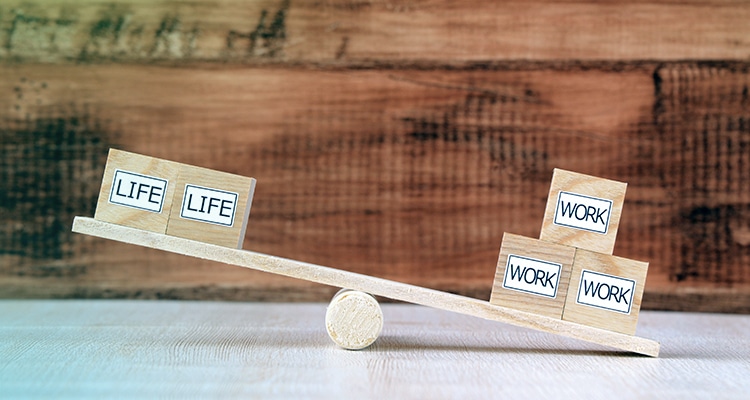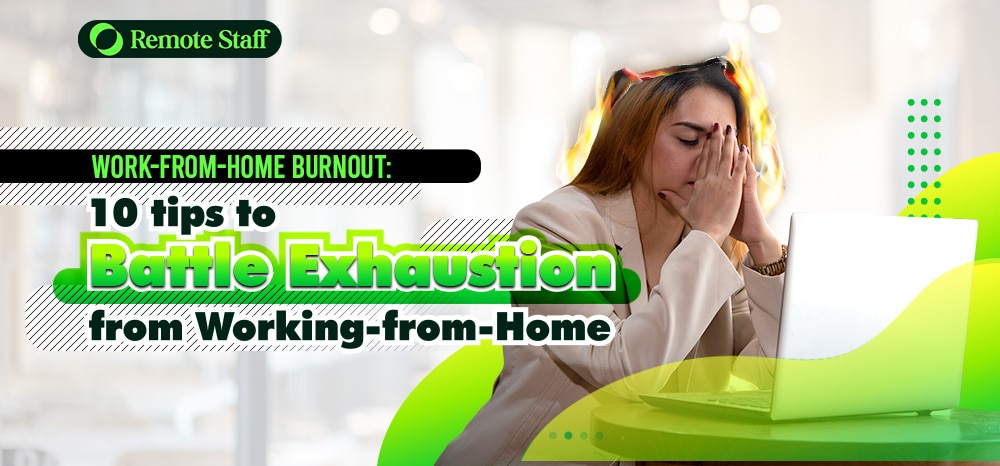Working-from-home is a blessing for most. It allowed people to have more time to spend on things that matter the most. If you are a parent, you have more time for your kids. If you are an aspiring entrepreneur, you can do a side hustle while having a fixed income. If you are passionate about specific advocacy, you can now do it!
But remote working needs a transition. The COVID19 pandemic forced millions of businesses and employees to abruptly adapt to remote working. And with anything done unprepared, problems ought to arise.
So many of our brethren are burning out from working-from-home. And it’s happening at an alarming rate. In a survey by Monster.com, 51% of the respondents are experiencing burning out from working-from-home. Although this data is from America, many in the Philippines and around the world as well.
As a remote worker for three years already, it’s really a fantastic gift. You don’t want to quit yet before harnessing all the benefits. With that, here are 10 tips to battle burnout from working-from-home.

Acknowledge that You Are Tired
The first step is acknowledging what you feel. Check the following signs. Burnout is a state where you lack the motivation to work anymore. It might be because of the results or just how the environment is.
And it’s okay to feel that way. We are human. With the hustle culture, many think that it’s shameful to be tired. That it’s disgraceful to be sleeping “before you’re done!” NO!
Acknowledge your feelings and accept that you can burn out. With this, you can find solutions to recover from it.

Time Blocking Your Schedule
One of the pressing concerns for remote workers is that there is no separation of work and personal time. And it’s hard to implement because, well, you’re working-from-home. Your bosses might have forgotten that you have a life outside of work.
Imagine emergency meetings at 7 PM. You don’t have set hours. Your time is at the whim of your boss.
It’s best to talk to your boss about it. They just want to make sure their employees are productive. But there is a non-intrusive way to implement it.
I suggest using a time tracker. A time tracker can protect you from overworking to the point of burnout. A powerful tool like the Remote Platform can monitor your team’s productivity and can be proof of work for your boss.
Deep Breathing Exercises
Breathe in. Breathe Out. This exercise might be simple, but it can go a long way. According to an article in Stress.org, deep breathing exercises increase oxygen levels and stimulate the parasympathetic nervous system promoting a state of calmness.
This calmness might ease your anxiety that might cause your burnout.

Social Media Detox
Many things in social media can increase our anxiety, especially today. The COVID cases plus the international friction between superpowers. Unknowingly, we can break down from all these negative news. Even the strongest people are affected.
So a social media detox might be an excellent way to avoid stress-inducing burnout. Unfollow people or news that might be toxic to your mental health. Burnout is a half physical and half mental battle.
Connect with People
But not all things are bad in social media. You can use it to connect with people you love and care about. We have a long time (at least in the Philippines) before the pandemic will end. So, instant messaging and video calls is your only way to communicate.
And having that social connection, even virtual ones, can be meaningful enough to ease you off burnout.

Exercise
Having a healthy lifestyle can trickle down to happy work life. Based on a study, exercise increases overall well-being and can lower down stress.

Change of Scenery
Sometimes, a change of scenery can be a respite from all the hustle and bustle. If it’s possible, with social distancing and quarantine rules on the mind, take a walk. Enjoy a different scenery like a nature trek.
Nature treks alleviate stress and can also be a form of exercise!

Practice Mindfulness
Many things are going on right now that we are not aware of the good things we have at present. Practicing mindfulness can help us see a brighter perspective. Mindfulness is being appreciative of all our feelings and thoughts at the present moment.
Being present at the “now” gives us the focus on “today” and relieves us from anxieties of tomorrow. You can do this by meditating, taking a reflective pause, or relaxing activities like yoga.

Gratitude Journal
Another way to practice mindfulness is a gratitude journal. Gratitude is essential because that thankful feeling increases our happiness and contentment.
And it’s not just a “be positive” movement. Those findings are based on two longitudinal studies.
I can personally attest to this. Every night, I just write the top 5 things I’m thankful for. It doesn’t have to be grand! It can be “I’m thankful for my work, my friends, that sumptuous meal.” ANYTHING.
Surprisingly, I feel really good every day as it became a habit.

Conclusion
Burn out is quite serious. No one wants to feel devoid of happiness when we work most of the time. Try out the tips above, and battle work-from-home burnout! Cheers!



